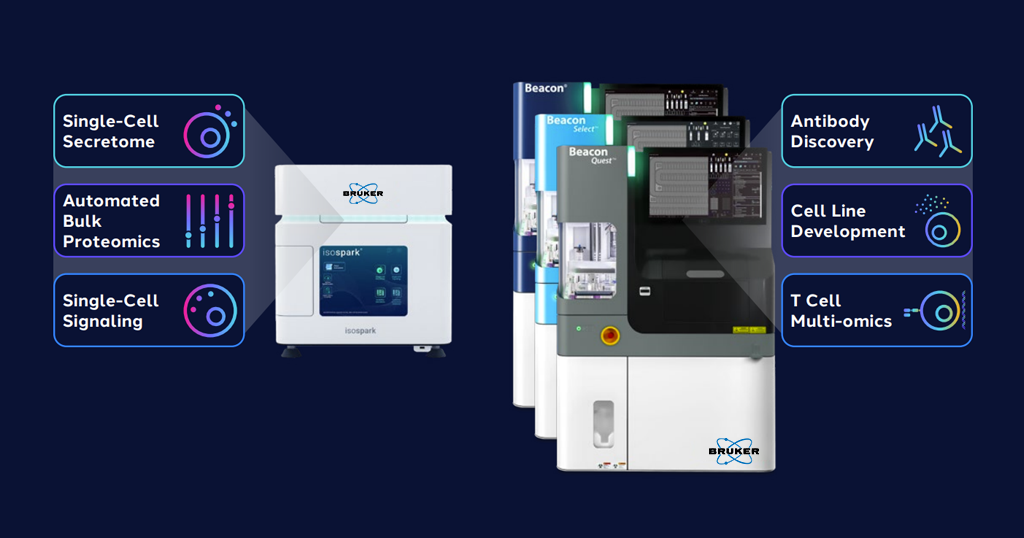The convergence of optofluidics and proteomic barcoding technologies marks a significant milestone in the evolution of cancer immunotherapy research. These cutting-edge tools empower scientists to unravel the complexities of immune responses, cellular behaviors, and functional proteomics with unprecedented speed and precision. As the pursuit of personalized medicine gains momentum, these technologies offer promise in guiding us toward more effective and targeted treatments for cancer patients.
Next generation immune therapies have emerged as a revolutionary approach in cancer treatment, exhibiting remarkable efficacy in battling malignancies. However, the quest for enhanced effectiveness, reduced side effects, and optimized manufacturing has driven researchers to delve deeper into the intricacies of immune responses and cellular interactions. In this effort, cutting-edge technologies like optofluidics and proteomic barcoding are proving to be indispensable tools. This article explores how these technologies are transforming novel therapy development and research, ushering in a new era of personalized medicine.
Find our product brochure here which covers our full suite of single cell and bulk proteomic analysis solutions:
Optofluidics: A Glimpse into the Future of Cell Analysis
At the heart of the Beacon® instrument lies a groundbreaking synergy of optics and nanofluidics, aptly named optofluidics. This innovative technology enables the selective sorting of individual cells into NanoPen® chambers, where they can undergo isolation, cultivation, assays, and targeted exportation. The advantages of this instrument are manifold:
Speed and Insight: Optofluidics accelerates cell analysis, enabling the examination of thousands of single cells faster than traditional technologies. Traditional methods can require weeks to process large cell quantities.
Live Cell Function and Recovery: The Beacon® instrument’s unique workflows facilitate the functional profiling of live cells and their subsequent recovery for further analysis. This dynamic approach provides a more comprehensive understanding of cellular behavior.
Multi-Assay Capability: Researchers can perform multiple assays on the same set of cells, thereby extracting more information and reducing the need for additional sample collection.
Automation and Efficiency: With increased throughput, higher resolution insights, and reduced hands-on time, the Beacon® instrument automates processes, streamlining research efforts.
Deeper Insights: The instrument’s ability to analyze multi-dimensional imaging data opens doors to insights that were previously unattainable. This feature promises to unearth hidden complexities within cellular responses.
Proteomic Barcoding: Revolutionizing Functional Proteomics
The IsoSparkTM Proteomic Barcoding instrument introduces a personalized functional proteomics system, placing powerful tools within reach of every lab. Its capabilities span various research areas and high-impact applications, all while fitting on a standard lab bench. Key features of this instrument include:
IsoCode® Single-Cell Secretome chip: This facet of the technology enables precise functional profiling of individual immune cells, revolutionizing immune response characterization. By identifying highly functional cell subsets, researchers gain insights into critical factors like persistence, potency, and durability.
IsoCode® Single-Cell Signaling chip: This assay, focusing on intracellular signaling omics, offers an in-depth functional portrayal of signaling networks and resistance pathways in cancer cells. This helps to uncover insights that are valuable for the enhancement of treatments targeting therapeutic resistance.
Bulk Protein Screening: High-plex immunoassays empower automated multiplexed proteomics, even with minimal sample volumes. CodePlex® and MeteorTM chips simplify bulk cytokine data analysis and minimize variability, ensuring robust and reliable results.
Upcoming Webinar: Harnessing the Power of Single Cell Technologies to Build More Effective CAR-T Cell Therapies
To learn more about how these powerful technologies are shaping the future of cancer immunotherapies, join us September 11, 2023 at 11:00AM ET for a live webinar presented by Anthony Zamora, PhD, of Medical College of Wisconsin. This webinar will explore how single-cell, multiplexed analysis, powered by proteomic barcoding and optofluidic technologies, can revolutionize our understanding of tumor immunogenicity, T-cell repertoire, and immune cell biomarkers. The webinar will delve into real-world case studies that showcase the practical applications of these methods.


